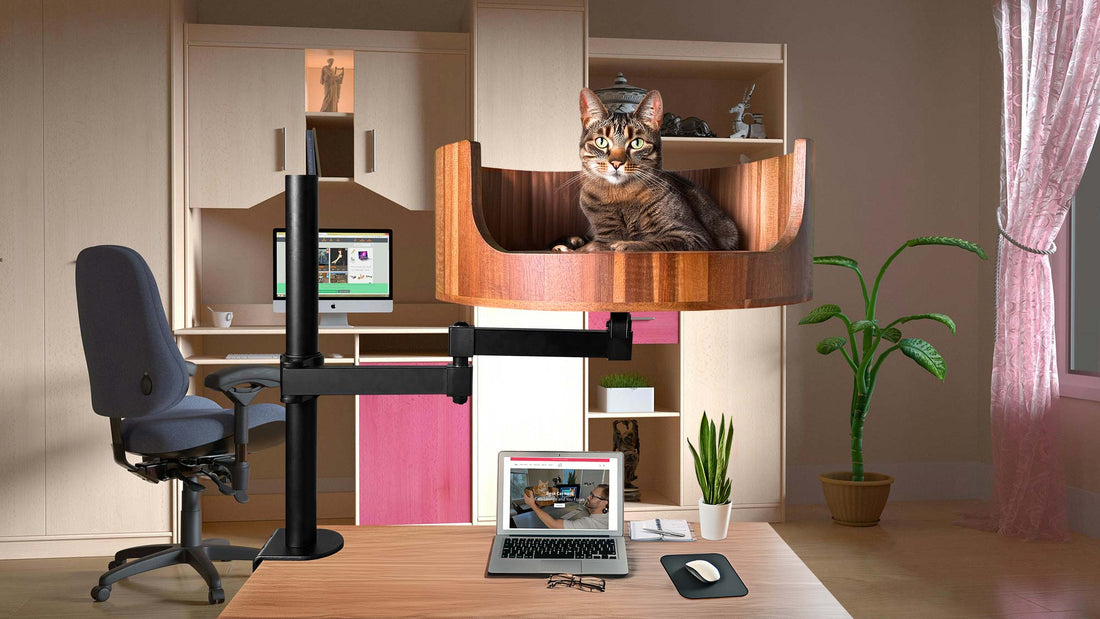
My Cat Is Peeing Blood: What You Need to Know
Share
If you have noticed that your cat is peeing blood, it can be a concerning and alarming situation. There are various reasons why this may be happening, from urinary tract infections to bladder stones or even more serious conditions like cancer. In this article, we will delve into what you need to know if your cat is experiencing this symptom, including possible causes, symptoms to watch for, and when to seek veterinary care.
One common cause of blood in a cat's urine is a urinary tract infection, which can happen when bacteria enter and multiply in the urinary tract. Other conditions like bladder stones, tumors, or feline idiopathic cystitis can also lead to hematuria, or blood in the urine. Symptoms to watch for in addition to blood in the urine include frequent urination, straining to urinate, crying out in pain while urinating, and changes in litter box habits. If you notice any of these signs in your cat, it's important to consult with your veterinarian for a proper diagnosis and treatment plan.
1. Blood in your cat's urine can be a sign of a serious health issue and should be addressed by a veterinarian promptly.
2. Common causes of blood in cat urine include urinary tract infections, bladder stones, or more severe conditions like kidney disease or tumors.
3. Diagnosing the underlying cause of your cat's bloody urine may require a physical exam, blood tests, urine tests, and imaging such as x-rays or ultrasounds.
4. Treatment options for bloody urine in cats can vary depending on the cause, but may include antibiotics, dietary changes, surgery, or other interventions.
5. Regular veterinary check-ups and monitoring your cat's behavior and litter box habits can help catch any potential health issues early.
Causes of Blood in Cat Urine
There are several potential reasons why your cat may be peeing blood. Infections, such as urinary tract infections or bladder infections, are common culprits. Kidney stones or crystals in the urine can also lead to blood in the urine. Other possible causes include bladder tumors, trauma or injury, or even certain medications.
Symptoms to Look Out For
If you notice your cat is peeing blood, it is important to be on the lookout for other accompanying symptoms. These may include frequent urination, straining to urinate, urinating outside of the litter box, licking or biting at the genital area, or signs of pain or discomfort. Additionally, changes in your cat's behavior, appetite, or energy levels may also indicate a problem.
When to Seek Veterinary Care
If you observe blood in your cat's urine, it is crucial to seek veterinary care as soon as possible. Your veterinarian will conduct a thorough physical examination and may recommend diagnostic tests, such as urinalysis, blood tests, or imaging studies, to determine the underlying cause of the blood in the urine. Prompt diagnosis and treatment are essential to ensure the best possible outcome for your cat.
Treatment Options
The treatment for blood in your cat's urine will depend on the underlying cause. Infections may be treated with antibiotics, while kidney stones or crystals may require dietary changes or medication. In more severe cases, surgical intervention may be necessary. Your veterinarian will work with you to develop a treatment plan that addresses your cat's specific condition and needs. Regular monitoring and follow-up care may also be recommended to ensure your cat's continued health and well-being.
Frequently Asked Questions
Is the Desk Cat Nest suitable for a cat who is peeing blood?
While the Desk Cat Nest provides a cozy and comfortable space for your cat, it is important to first consult with your veterinarian to determine the underlying cause of your cat's urinary issues. The Desk Cat Nest is not a medical solution and should not be used as a replacement for proper veterinary care.
Will the Desk Cat Nest alleviate my cat's urinary issues?
The Desk Cat Nest is designed to provide a comfortable resting space for your cat, but it will not cure or treat any medical conditions. It is important to address the root cause of your cat's urinary issues through proper veterinary care.
Can I use the Desk Cat Nest in combination with veterinary treatment for my cat's urinary issues?
Yes, the Desk Cat Nest can be used as a comfortable space for your cat while they undergo treatment for their urinary issues. However, it is crucial to follow your veterinarian's recommendations and treatment plan to ensure the best outcome for your cat's health.
Is the Desk Cat Nest easy to clean in case of accidents related to my cat's urinary issues?
The Desk Cat Nest is made with durable and easy-to-clean materials, making it simple to spot clean in case of accidents. However, it is important to address any underlying health issues causing your cat to pee blood to prevent future accidents.
Can the Desk Cat Nest help reduce stress or anxiety that may be contributing to my cat's urinary issues?
While the cozy and enclosed space of the Desk Cat Nest can provide a sense of security for your cat, it is essential to address any potential stressors in your cat's environment that may be contributing to their urinary issues. Consulting with a veterinarian or animal behaviorist may be necessary to address these concerns effectively.
In conclusion, investing in a Desk Cat Bed can greatly benefit your cat if they are experiencing urinary issues such as peeing blood. The elevated design of the bed can help reduce stress on your cat's bladder and promote proper urinary health. Additionally, the comfortable cushioning of the bed can provide a soothing and comforting space for your cat to relax, which can aid in their overall well-being. Overall, the Desk Cat Bed is a valuable choice for addressing urinary issues in cats and providing them with a comfortable and supportive resting spot.



















































